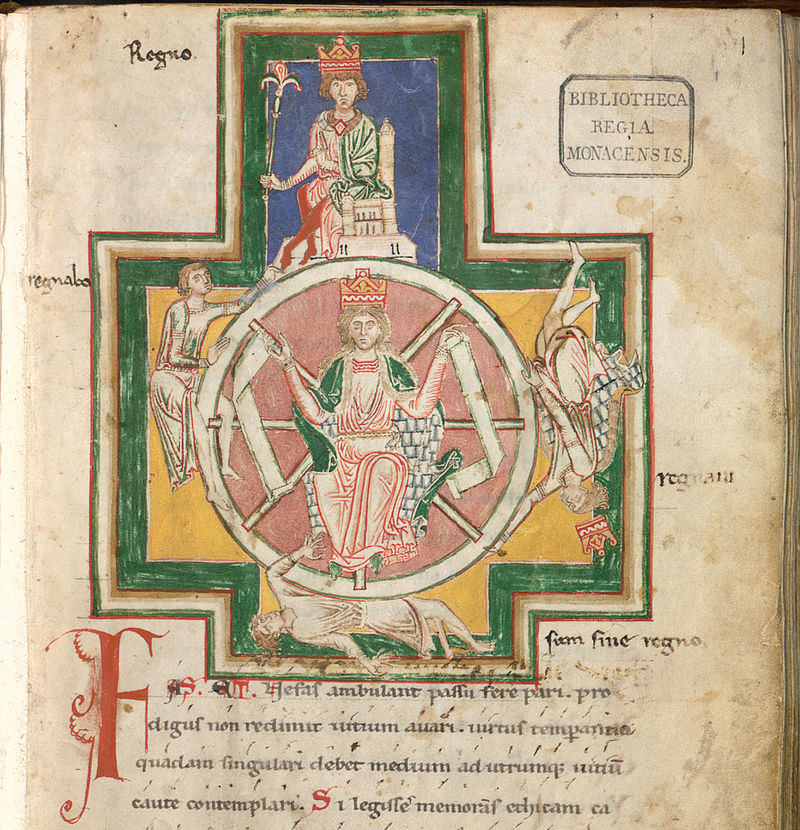Is it good to be a Pessimist?
Beneath our apparent mask of optimism sold to us by the media, of joie de vivre, of unlimited expansion of human possibilities, hides materialistic pessimism.
Materialistic pessimism is based on the idea that everything, after all, is matter, and beyond it there is only the inexplicable void. The horror before it, the anguish of what has no solution, generates fear and pessimism, which one tries to compensate with an increasingly evanescent and transitory present, to which one gives oneself trying to forget.
Materialism explains the existence of pain as the result of a nonsense (for them) that began with the differentiation of the homogeneous matter of the beginning, from the Big Bang, towards the infinite diversity full of contrasts and contradictions of our present reality.
As there is no ulterior end, but only the absurd end of existence; the tireless search for pleasure (physical, emotional and mental) becomes the only way out of this pessimistic background of human life. It is a false optimism based on a deadly pessimism.
Let us live and eat today, as the texts of the famous Carmina Burana suggest, let us delight in earthly pleasures, human love and the enjoyment of nature. In all that there is nothing wrong in itself, except that everything that lacks a context, a transcendent purpose, and it is ultimately meaningless.
Fortune spins without rules, giving sometimes freedom, sometimes relief, and sometimes oppression and pain to human beings, as presented in the image above from the original text on which Carl Orff’s Carmina Burana is based. Below is the music that perfectly characterizes this insane joy of Fortuna:
O Fortune, like the moon you are changeable, ever waxing and waning; hateful life first oppresses and then soothes as fancy takes it; poverty and power it melts them like ice….
Philosophical pessimism
Unlike the above, philosophical pessimism starts from the recognition of the need to annihilate the insatiable Desire, confronting the evidence of a world that in itself is nothing more than a Great Test, a great battlefield, where souls have to fight again and again, and against the thousands of internal and external enemies that come their way.
In Philosophy, the annihilation of the Self is unthinkable, for that is something impossible; however, the same does not happen in the field of materialistic pessimism where, as we have seen above, self-forgetfulness, the accelerated search for the end of so much suffering, is disguised in cheerful colors, in orgiastic resignation, with the motto “let us live to the fullest” before our only days are over.
Neither is philosophical pessimism the negation of the world, nor is it seeking refuge, isolated from the world, in a place where no one can reach us. It is rather a matter of accepting the challenge, of “playing the game” against Maya, the illusion, acting well in the scene we have to represent, an illusion that is reflected in the unforgettable verses of the famous Calderón de la Barca:
It is true, then: let us repress
this fierce condition,
this fury, this ambition,
in case we ever dream.
And so we will do, because we are
in a world so singular,
that living is only dreaming;
and experience teaches me
that the man who lives dreams
what he is until he wakes up.
The rich man dreams of his wealth,
who offers him more care;
dreams the poor who suffers
his misery and his poverty;
The one who begins to thrive dreams,
the one who strives and pretends dreams,
the one who hurts and offends dreams,
and in the world, in conclusion,
everyone dreams of what they are,
although no one understands it…
The philosophical pessimist knows, then, that death is nothing more than a change of clothes, a new stage to play, and he fulfills his role as best he understands it, because he knows that peace and happiness do not reside in this world, but that this world offers him all the tools to play this great game, to escape from the bonds of Maya, the true Evil, though necessary, like the pains of childbirth, in order to give birth to a truly free and wise Being.
Finally, his philosophical pessimism, now free from the shackles of deadly materialism, allows him to struggle happily in this life, with a real and transcendent optimism proper to the one who knows that one day he will reach his goal.




No comments:
Post a Comment